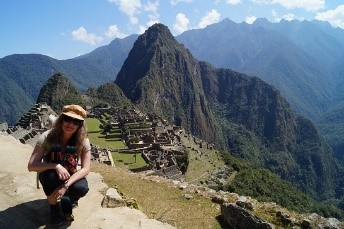by Katerina Strani
This post was originally published in the CREM research blog Publics en Question. For a similar (but not identical) English version, please visit this page.

Il a longtemps été prouvé que notre langage a un impact sur la façon dont nous pensons et, finalement, la façon dont nous soutenons nos arguments (Whorf, 1956). Notre langage façonne notre pensée et notre vision du monde. C’est par la langue que nous devenons des êtres politiques. Le philosophe Ludwig Wittgenstein a dit que les « limites de ma langue sont les limites de mon monde ». Dai Vaughan a adapté cette citation célèbre en déclarant que« les limites de ma langue sont les limites de ton monde ».
Qu’est-ce que cela signifie quand nous parlons des langues différentes dans les sphères publiques?
L’argumentation constitue la pierre angulaire de la sphère publique, mais, malgré l’importance du multilinguisme sur la construction sociale des sphères publiques contemporaines, ceci reste relativement sous-exploré. Les sphères publiques ne sont pas statiques, mais dynamiques et en pleine évolution. La citoyenneté post-nationale (comme la citoyenneté de l’UE), les sphères publiques sous-nationales (assemblées, collectivités locales, etc.), les langues minoritaires dans l’administration publique, les publics diasporiques en raison de l’augmentation des migrations ont abouti à la communication publique multilingue augmentée. Si on ajoute à cela les nouveaux médias et des « tiers-espaces » de communication (Bhabha, 1994), on voit que la communication multilingue a modifié la composition de la sphère publique non seulement en termes de structure mais aussi en termes de nature communicative. Les interprètes sont de plus en plus utilisés pour parvenir à la compréhension et favoriser le débat dans un environnement multilingue (voir les sphères publiques de l’UE). La reconnaissance des différences culturelles et la thématisation de l’«altérité» font désormais partie du débat multilingue (Doerr, 2012). Les logiciels de traduction deviennent également populaires dans les forums multilingues en ligne, bien que parfois avec des résultats mitigés.
Cependant, malgré la réalité multilingue évidente, il reste quand même une idéologie monolingualiste (Doerr, 2012 ; Pym, 2013) et une hypothèse erronée de l’homogénéité linguistique des sphères publiques. Et cela est encore plus alarmant quand on sait que le multilinguisme dans la sphère publique n’est pas quelque chose de nouveau. Rappelons-nous de l’Empire des Habsbourg, de l’Empire Ottoman, ou bien de la France du 19e siècle ; et aujourd’hui, des pays comme la Belgique, la Suisse, le Canada, l’Afrique du Sud ou l’Inde sont officiellement bilingues or multilingues.
Le multilinguisme continue à constituer une partie intégrante de la sphère publique contemporaine, dans laquelle l’argumentation politique peut défier les barrières linguistiques. Comme Thomas Risse et Marianne Van de Steeg (2003) l’ont fait valoir, il n’est « pas besoin de parler la même langue pour communiquer d’une manière significative » ; comme Nicole Doerr (2012) l’a démontré dans ses recherches sur le Forum social européen, malgré le pluralisme linguistique et les compétences linguistiques asymétriques des participants, les débats multilingues sont plus inclusifs que les monolingues. D’un bout à l’autre, la communication devient peu à peu détachée du fonds linguistique.
Bien sûr, cela a des implications pratiques ainsi que normatives. La compréhension semble de plus en plus inaccessible. Une autre langue ajoute un niveau supplémentaire à la contingence (et au risque de mécompréhension ). En outre, les différences de pouvoir dans les sphères publiques multilingues peuvent non seulement être enracinées dans le statut, l’éducation ou l’accès, mais aussi dans la langue choisie pour la communication ou enfin dans la façon dont la langue dominante est parlée (Doerr, 2012 ; Fraser 2007). Le manque d’une langue commune dans l’UE, par exemple, n’empêche pas l’hégémonie linguistique; et toute lingua franca ne sera probablement parlée que par les élites où les éduqués (Fraser, 2007).
Mais il faut considérer ceci : quand nous parlons une langue différente, nous devenons essentiellement des personnes différentes. Quand nous pensons dans une langue différente, nous pensons d’une manière différente. Les langues représentent les cultures, les systèmes de croyance, les mondes vécus. Si nous passons à une autre langue, nous passons à une vision du monde différente. Forcer les gens à parler la même langue, en particulier dans le débat politique, revient à les forcer à penser différemment et à avoir des arguments différents. Certaines personnes considèrent cette obligation comme une forme d’oppression.
Pourquoi dire que l’anglais en Grande-Bretagne, le français en France, etc., est la seule langue admise de débat critique rationnel ? Il est arrogant de penser qu’une langue dominante est la langue de la raison et la seule pourvoyeuse de la vérité. Voilà pourquoi nous devons adopter le multilinguisme, nous devons le favoriser et l’encourager, surtout en politique, où il est le plus vital. Il encourage le pluralisme dans la pensée et l’expression, ce qui est au cœur de la démocratie.
| Références
Bhabha H., 1994, The Location of Culture, London, New York, Routledge.Doerr N., 2012, « Translating democracy : how activists in the European Social Forum practice multilingual deliberation », European Political Science Review, 4 (3), pp. 361-384.
Fraser N., 2007, « Transnationalizing the Public Sphere : On the Legitimacy and Efficacy of Public Opinion in a Post-Westphalian World », European Institute for Progressive Cultural Policies, doi : 10.1177/0263276407080090.
Pym A., 2013, « Translation as an instrument for multilingual democracy », Critical Multilingualism Studies, 1(2), pp. 78-95.
Risse T., Van de Steeg M., 2003, « An emerging European public sphere ? Empirical evidence and theoretical clarifications » : Conference on the Europeanisation of Public Spheres, Political Mobilisation, Public Communication and the European Union, Science Center Berlin, 20-21 juin.
Whorf B.L., 1956, « The Relation of Habitual Thought and Behavior to Language », pp. 134-59, in : Carroll, J. B. et al. (dir.), Language, Thought and Reality: Selected Writings of Benjamin Lee Whorf, Cambridge, MIT Press. |






